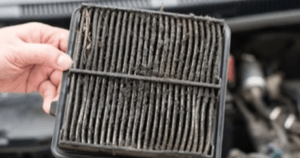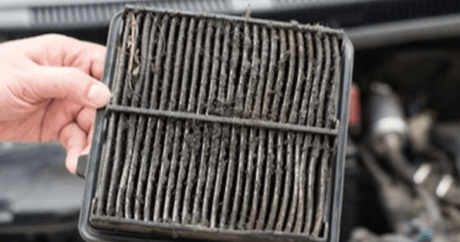…the vital components for a smooth ride
In the world of automotive engineering, car engines stand as the heart of the vehicle, powering it with the necessary force to move swiftly and efficiently. A car engine, a marvel of modern engineering, is a complex system that relies on three fundamental components – air, fuel and spark – to function optimally. To ensure longevity of the engine and keep it running at its peak, certain key elements – which I will refer to as gatekeepers – play a crucial role. In this article, we delve into the significance of air, fuel and spark, while shedding light on the gatekeepers responsible for preserving engine life and efficiency.
Air: The Breath of Life
The first and foremost requirement for a car engine is air. It acts as the breath of life for the engine, facilitating the process of combustion that generates power. During the intake stroke, the engine draws in air which is mixed with fuel to create a combustible mixture. This mixture is then compressed during the compression stroke before ignition, leading to the generation of mechanical energy in the form of expanding gas. Therefore, a steady and clean supply of air is crucial for the engine to perform optimally.
Gatekeeper: Air-Filter
To ensure the quality of air entering the engine, an essential gatekeeper is the air-filter. This relatively small but vital component is responsible for trapping dust, debris, pollen, soot and other contaminants from the incoming air. As the air-filter becomes clogged over time, it can impede air-flow and reduce efficiency of the engine. Regular maintenance and replacement of the air-filter, as recommended by the vehicle manufacturer, is imperative to prevent engine damage and maintain peak performance. Sometimes when the air-filter is dirty or the engine is not getting enough air as determined by the airflow sensor, more fuel will be injected into the system to enable safe operation (prevent detonation) of the engine – which will cost you in fuel consumption.

Fuel: Powering the Engine
Just as the human body needs fuel to function, a car engine relies on a consistent supply of high-quality fuel to generate power. Fuel, typically gasoline or diesel, is injected into the engine’s cylinders in a controlled manner. The spark-plug ignites the fuel-air mixture, initiating combustion and producing the necessary force to drive the vehicle.
Gatekeeper: Fuel Filter
The fuel filter serves as the guardian of an engine’s fuel system. It prevents impurities such as dirt, rust particles and contaminants from reaching the engine and clogging the fuel injectors. A clean and well-maintained fuel filter ensures a smooth flow of fuel, optimising engine performance and preventing potential damage. Regular replacement of the fuel filter is essential to safeguard the engine’s health and ensure efficient fuel consumption. Some cars have a fuel filter in the fuel tank, which makes it a very big job to change the filter. In this case, owners have to be cautious of where they purchase fuel from in order to prolong the fuel filter’s lifespan (purchase from a vendor you are sure observes the best quality standards of operation).
Spark: Igniting Power
The spark is the final piece of the puzzle in an engine’s functioning. After the air-fuel mixture is compressed, the spark-plug emits an electric spark that ignites the mixture. This ignition sets off the combustion process, releasing energy and powering the engine’s pistons.
Gatekeeper: Spark Plug
The spark-plug, a fundamental gatekeeper, must be in excellent condition for proper ignition to occur. Over time, spark-plugs can wear out, leading to misfires, reduced fuel efficiency and rough engine performance. Regular inspection and replacement of spark-plugs, as advised by the manufacturer, is essential to maintain engine power and efficiency. Always buy spark-plugs from a source you can guarantee deals in genuine parts. I have determined from bitter experience that most spark-plugs on the market are of very poor quality.

Additional Gatekeeper: Oil Filter
In addition to the primary gatekeepers, there’s another crucial component responsible for engine longevity – the oil filter. Engine oil plays a pivotal role in lubricating various moving parts and reducing friction, thereby preventing wear and tear. The oil filter ensures that contaminants and debris are removed from the engine oil, preserving its quality and effectiveness. Routine oil and oil filter changes are vital to keep the engine running smoothly and prevent costly repairs.

Please note this: The manufacturer has maintenance routines and schedules determined by the engineers. It is in your best interest as a car owner to determine what is best for your car based on the operating environment. For example, if you drive a lot in traffic you should carry out your maintenance activities before the scheduled mileage is reached, because the car’s engine is running for long periods without it counting as mileage.
A car engine’s optimal performance relies on the harmonious interplay of air, fuel and spark. The gatekeepers – air filter, fuel filter, spark-plug, and oil filter – diligently protect the engine from harmful contaminants, ensuring its longevity and efficiency. Regular maintenance and timely replacement of these components are essential for preserving engine-health and maximising performance.
As responsible car owners, understanding the significance of these components empowers us to care for our vehicles and enjoy a smooth, reliable ride for years to come.
Happy motoring…










